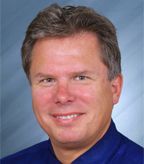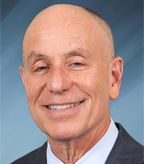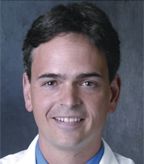'Economies of Scale' Yield Multiple Benefits for a Private, Physician-Run Oncology Practice
The community oncology practice is the nation’s headquarters in the war on cancer. Eighty-five percent of all cancer patients receive their treatment in local community oncology practices.
The community oncology practice is the nation’s headquarters in the war on cancer. Eighty-five percent of all cancer patients receive their treatment in local community oncology practices. However, these practices face pressure from all sides: declining public and private reimbursement, difficulty in implementing electronic medical records (EMRs), trouble maintaining access to current therapies and clinical trials for patients, and rising day-to-day overhead expenses are just some of the challenges that community oncologists must navigate every day. I am hopeful that the following description of the ways in which our oncology practice has confronted and overcome some of these challenges will provide others with a few helpful insights. Keys to our success include our emphasis on growing the practice, which has allowed us to take advantage of certain economies of scale, and an organizational model in which the practice’s physicians are actively involved in management decisions, resulting in an extremely high level of physician satisfaction, and as a consequence, in low turnover.

Scott A. Tetreault, MD

William N. Harwin, MD

David Eagle, MD
Florida Cancer Specialists (FCS) was initially founded in 1984. The small group quickly established itself as a quality leader in South Florida. Among area physicians, the practice also became known for its billing efficiency and infusion center discipline. Increasingly, local medical oncologists realized that as financial pressures continued to mount with each passing year, merging together and sharing the growing overhead expenses made good sense. Although growth was slow at first, it continued at a steady pace. With the addition of OHC-Sarasota (2004), Gulf Coast Oncology (2010) and Florida Cancer Institute (2011), along with many other smaller groups, FCS now has over 120 doctors practicing at more than 60 separate clinical sites, and it is the largest privately-owned medical oncology practice in the United States.
Because of its size, FCS has achieved certain advantages of scale. For example, the size of the group gives patients immediate access to all US Food and Drug Administration (FDA) approved chemotherapy and immunotherapy treatment options. FCS was the first private practice in Florida to administer sipuleucel-T (Provenge) and the first to provide crizotinitib (Xalkori) off-trial to patients in a community setting. Many of the newer cancer therapies are so expensive that small groups must decline to offer them to patients in their practice, which results in the patients and their families having to endure long and difficult trips to an academic center or hospital. Also, the infusion pharmacy administrative services at FCS are centralized, resulting in optimal inventory control and rapid delivery of chemotherapeutics to clinic patients.
Once the province only of academic centers, clinical research is now an integral part of community oncology practice, and FCS has become a national leader in accruing patients to clinical trials. At the 2011 meeting of the American Society of Clinical Oncology in Chicago, FCS was honored with the 2011 Clinical Trials Participation Award for contributions to clinical research. FCS partners with the Sarah-Cannon research network and several cooperative groups so that patients have a broad array of phase I and II trials to choose from in an office right near their home. Also, FCS was one of the first private practices in the United States to develop a phase I Drug Discovery Unit, and this has grown to include two locations, with rapidly expanding phase I trial menus.
In 2007, FCS developed a retail pharmacy for oral oncolytics, RXtoGo. This is managed by experienced pharmacists who not only provide direct-to-the-patient’s-door service, but also side-effect management and compliance tools. Just as important, however, has been the ways in which RXtoGo helps patients with the high costs of treatment. The RXtoGo team has established expertise in using a sophisticated EMR-based reimbursement investigation system to help patients overcome the economic challenges of oral therapy. This system can provide accurate and immediate insurance coverage information. For patients with unmanageable out-of-pocket costs, a team of skilled financial counselors can explore many sources of funding in an expeditious manner.
Economies of scale have also allowed FCS to develop pathology and radiology services. Three full-time board-certified hematopathologists read and report on all bone marrow biopsy and flow cytometry specimens from the new FCS pathology facility in Fort Myers, Florida. The reports are populated directly into FCS EMRs immediately. For urgent cases, such as suspected leukemias, communication is by cell phone or email. Routinely, a patient with a suspected leukemia can be seen in one of the FCS offices, a bone marrow biopsy can be done, and a full, accurate, morphologic and molecular diagnosis can be rendered and called to the treating physician in 24 hours or less. The radiology services similarly benefit patients, with immediate imaging review and radiologic consultations leading to better treatment decisions and less resource duplication.
Very early on in the history of FCS, it became obvious that growth could only be achieved if the practice was supported by a comprehensive EMR. FCS staff partnered closely with Altos Solutions to develop an EMR based on a foundational understanding of how an oncologist “thinks.” The result of this intensive and continuous collaboration was OncoEMR. The OncoEMR platform has facilitated standardization of all aspects of cancer treatment, and it has allowed the practice’s physicians to breathe life into the old adage that “measurement is the first step to improvement.” Compliance with NCCN guidelines is easily demonstrable and has been extremely high, which greatly benefits patients. Payers appreciate that they have accurate real-time information regarding the treatments provided to their members. Furthermore, OncoEMR has uniquely positioned FCS to actively participate in the ongoing dialogue regarding raising cancer treatment quality while improving cost-effectiveness. The size and geographic distribution of the practice, combined with its ability to collect and analyze data continuously and accurately, allows FCS to entertain practical discussions of alternative payment models with third-party payers.
The physicians of FCS express a high rate of satisfaction with the business and corporate structure of their practice. In fact, satisfaction is so high that no physician has ever voluntarily left to accept another position in hospital-based, academic, or private practice. Several important features of the organization of FCS help explain this remarkable track record. Each of the 100 partner physicians has an equal vote in corporate governance. The senior founding and managing partner has the same voting power as the physician who has just achieved partnership. The managing partner and the CEO oversee an executive team that handles all day-to day operations. For important issues requiring high levels of partner physician input, the practice is divided up into eight regions, and each region selects a physician to serve on the FCS Executive Board, which meets with the managing partner and the CEO monthly. The physicians who serve on the Executive Board seek input from partners in their region before voting on issues of significance to the group as a whole. Importantly, the path to partnership, including “buy-in,” is very clear and very fair. Likewise, “buy-out” by retiring physicians is a matter of simple mathematics regarding accounts receivable. No high-value good will or hard assets (other than an administration building) are part of the equation on either end.
Historically, one of the most contentious aspects of medical group accounting is allocation of expenses. A great deal of energy in privately owned groups is directed toward figuring out how to apportion the overhead of the practice among the physicians. In oncology, pharmaceutical costs can further complicate these discussions. To address this, FCS doctors have developed their own overhead schema that they feel strikes a fair balance, rewarding hard work without punishing those doctors who choose to practice a less demanding schedule. This physician-devised allocation schedule is easy to understand and has stood the test of time.
Finally, for physicians’ morale to remain high, they must feel confident in the accounting practices of the group, and they must feel that the data are transparent. FCS has an excellent executive team with a superb track record in medical oncology business management, and physicians are given a vast array of tools to confirm the reliability of all corporate income and expenses. Nothing is withheld from any partner physician, and all partners are provided all financial information.
In summary, Florida Cancer Specialists has grown to be the largest privately owned medical oncology practice in the country because the physician-owners have responded to the realities of modern medical practice in a unique way: instead of relinquishing control of the economic aspects of their practice to a hospital or other large institution, they have chosen to join together and use their combined talents to maintain their independence while hiring and supervising a team of highly skilled business executives who answer only to them, the owners. By expending the considerable time and energy it takes to remain independent, FCS physicians feel that they have been able to maintain control of the allocation of resources in the practice so that these resources flow to the areas which most benefit patients. Maintaining this practice structure is not easy and requires dedicated doctors who are willing to sacrifice time and talent for the common good.
Ultimately, the physicians at FCS are driven by a passion to provide the most advanced cancer treatment, using cutting-edge technologies, in a setting where patients can be close to home and surrounded by family and friends. They feel this goal is best achieved when the physicians themselves are the final decision-makers in the practice.

The content of ONCOLOGY’s Practice & Policy department represents a joint venture between the editors of ONCOLOGY and the Community Oncology Alliance. Articles featured in Practice & Policy are supplied by the COA as part of its mission to educate oncologists about the policy issues that affect the nation's cancer care delivery system. Practice & Policy features reflect the views of their authors and not necessarily those of the COA.